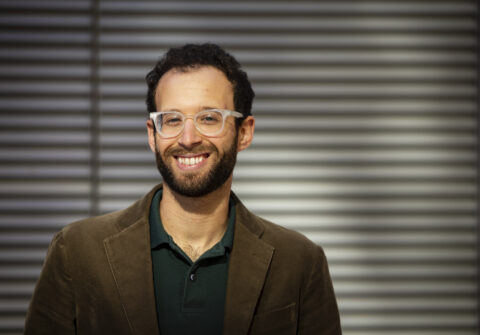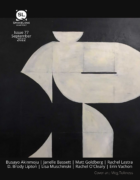Talk to me about having a common name. I’m asking this because I have one, too. There are many people who are not me but still have the name Wendy Fox. The DJ in Idaho. The health policy wonk in DC. A woman who writes roundups of events in Chicagoland every week. Do you ever feel weird about sharing your name?
I’ve got a complicated relationship with my name. Growing up, there were probably a dozen Matts and Matthews in my grade, and I had to navigate that crappy feeling of not being unique. On the other hand, my family was the only Jewish family in the rural part of Maryland where I lived, so there were no other Goldbergs (or Goldmans or Silverbergs). I only found out that Matthew Goldberg was a super common name later, once I was old enough to use the Internet and could Google myself. If I could go back to being a baby with the ability to choose my own name, I’d likely opt for a different, more eccentric one. At this point, though, I’m so used to the name I’ve been given that changing it feels wrong. As a writer, I’ve thought more than a few times about using a pen name for my work, since it probably helps having a more recognizable name. But doing that also felt too much like I was hiding. It’s a pickle for sure. Maybe I’ll be convinced to use a pen name someday, but until then I’ll just have to be me.
The gameshow in your flash, Object!, is fictional, but there was a gameshow in the mid-sixties called “The Object Is….” What inspired you to use this format, and was that short-lived Twentieth Century series an influence?
The concept for this piece was somewhat inspired by a gameshow, but not the one(s) you’re thinking of. There’s a fictional gameshow on the comedy 30 Rock called Homonym, where the contestants can never guess the correct definition of a word because it’s always the other one. I’m not sure when the specific idea for Object! popped into my head. For me, story ideas tend to germinate for a while. All I know is that, at some point, I wrote down a snippet about the concept in the notes app of my phone. Later, I revisited the snippet on a long plane ride and tinkered with it a bit. Once I nailed down the specific rules for the gameshow, the gist of the story just flowed naturally from there.
One contestant on the Object! gameshow is referred to as a “secretary at a law firm,” which has the interesting effect of putting era into question, as “secretary” is not really a word people use as much anymore to describe people in administrative functions. The story can read contemporary, but it can also read as a throwback. How were you thinking about time as you wrote this?
I feel like gameshows tend to have a retro vibe given their association with the fifties and sixties, which might’ve informed my use of “secretary.” But in terms of a definitive answer about when this story takes place, I’m not sure there is one. More often than not, my stories take place “out of time” in the sense that they exist in a world that’s recognizable to ours but isn’t quite ours.
Frankly, I struggle with writing completely realist fiction, so dreaming up an alternate world with slightly different rules and social norms helps me be more inventive. Whenever I set a story in the real world (contemporary or otherwise), it has a tendency of being pretty boring to read and even more boring to write.
I love when the speaker is told / asked: “Your fate has been decided. Do you object?” Object is part homophone, as in do you object (disagree), but could also be read as verbing, as in do you object (will you become the object?). There’s so much happening in a short snippet of dialogue. But the real question is: Why does he cheat?
I love playing with language. You’ll usually find my characters misunderstanding each other, misquoting various adages, and generally punning it up. I also find it satisfying to leave the words in my stories up to interpretation. As for your real question, I think it’s deeply human to be curious about how things work. The speaker peeks because, even though he believes he’s got nothing to live for, his desire to understand the world isn’t extinguished. That curiosity is what saves him. It’s like the opposite of being a cat.



 The core workshop of SmokeLong Fitness is all in writing, so you can take part from anywhere at anytime. We are excited about creating a supportive, consistent and structured environment for flash writers to work on their craft in a community. We are thrilled and proud to say that our workshop participants have won, placed, or been listed in every major flash competition. Community works.
The core workshop of SmokeLong Fitness is all in writing, so you can take part from anywhere at anytime. We are excited about creating a supportive, consistent and structured environment for flash writers to work on their craft in a community. We are thrilled and proud to say that our workshop participants have won, placed, or been listed in every major flash competition. Community works.